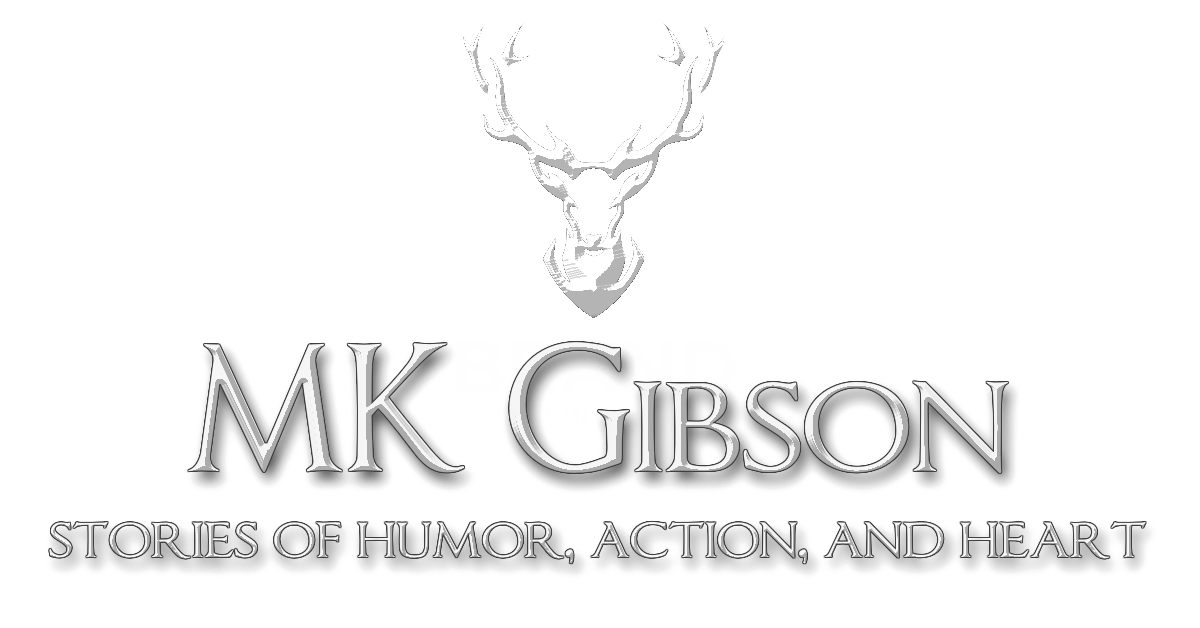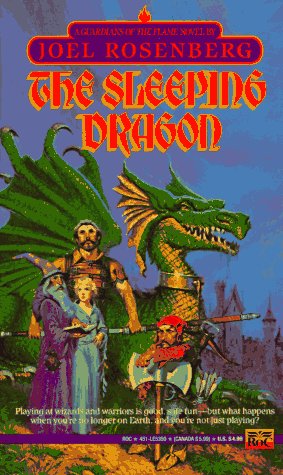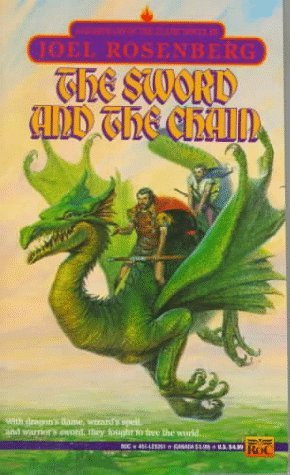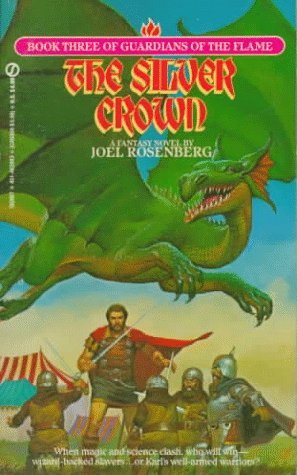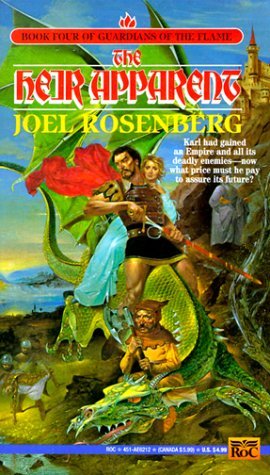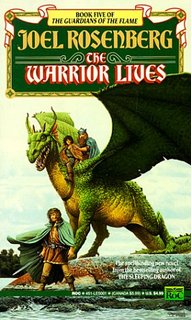Twenty Five years of Influence -or- Moments We Never Forget
Someone asked me if I’d read a few books which are considered classics in the sci-fi & fantasy realm. Some I had. Others I had not. I was asked, how could I excel as a writer if I didn’t read them.
I just smiled.
Twenty five years ago I came across a fantasy book series which changed my life. It wasn’t the greatest series ever. But it was what I needed. There are moments in our lives which are clear pivot points. I always knew I wanted to be a writer one day. But the type of write I wanted to be...well, that was forever changed when I read this series.
The following is a piece I did a while back about anger and conflict in novels. And it was fitting as it exemplified what the impact that book series had on me. Even 25 years later and hopefully 50 more to come.
Twenty Five years of Anger
`"No!" Tennetty drew her beltknife with her free hand. "He's my kill."
*You will stand aside, Tennetty,* Ellegon said.
"Why?"
Twenty-five years ago I read these words in a book I received by accident, a book that would forever change me. They have been with me ever since.
Younger folks might not know about this, but there used to be a thing called The TV Guide, a weekly mini-magazine that told people what would be on TV. It was littered with advertising. One advertisement that caught my young, nerdy eye was a Sci-Fi/Fantasy book of the month club. You send them a couple of bucks, you get a bunch of free books and two new books a month. If you don’t want the two new books, you mail back a “No Thank You” card. Well, 15-year-old me forgot that part, and I got a book in the mail, an omnibus edition of the late Joel Rosenberg’s Guardian of the Flame series. I cracked it open, and it drew me in deeper than any book ever had, or ever would.
In the series, a group of college students is transported into a parallel universe where they become their fantasy tabletop gaming characters. With real-world minds in fantasy bodies,
and no way to get home, the heroes set out to find their way in this new land. They ultimately decide to take on the all-powerful Slaver’s Guild, because all people deserve to be free. And when you challenge something of that power, despite good intentions,
pain and suffering will follow. But the leader, Karl, knows that they have to keep the Flame of Freedom burning.
The characters were so real and so developed that they became my friends. I
read and re-read the book so many times it was disintegrating in my hands. I had to hunt in used book stores to get my beloved words back.
Rosenberg's creation is what inspired me to become a writer. He could take me from cheering joy to tearful sadness. And, when he decided to paint a scene with violence and anger, it wasn’t just the gore-porn that runs rampant in the work of lesser writers. His use
of anger and violence was purposeful and impactful, a masterful stroke from an artist.
The "Tennety" from above quotation was a rescued slave woman who had been abused for years. She took up the sword as her way of dealing with her demons and bringing
pain to those who hurt her and enslaved others. It was the only way her psyche would allow her to continue in the world. Ellegon is a dragon--a young one, but he too had been enslaved, chained to a cesspit to forever burn sewage, thereby serving as a city's sanitation device. Both had been saved by the hero Karl.
In the series' third book, The Silver Crown, Karl is the target of an assassination. Under the cover of night, three killers sneak into the valley, Home, where Karl and his growing community of free-folk live. After Karl and his friends foiled assassination attempt, one assassin was left alive. Using the telepathic abilities inherent to all of that world’s dragons, Ellegon discovers the plan against the residents of Home and the source of the attack.
But what should the heroes do with the remaining assassin? Free him? Kill him? What would--what should--the heroes do? The following scene unfolds after the assassin’s mind is read outside the house where he was discovered, the house where he had killed an entire family, including a little girl.
"No!" Tennetty drew her beltknife with her free hand. "He's my kill."
*You will stand aside, Tennetty,* Ellegon said.
"Why?"
Ellegon's mental voice was calm, matter-of-fact. *You will stand aside, Tennetty, because the little girl's name was Anna. They called her Anna Minor, as Werthan's wife was Anna Major.
*You will stand aside because I had promised to teach her how to swim. And you will stand aside because she always called me Ehgon, because she couldn't manage the l-sound.
*And you will stand aside because this is the one that smiled down at her to quiet her as he opened her throat with his knife.
*And if you don't understand any of that, you will stand aside, Tennetty, and you will do so now, because if you do not stand aside I will surely burn you down where you stand.*
Tennetty moved away.
Gently, Ellegon picked up the struggling assassin in his mouth and leaped skyward, his mindvoice diminishing as he gained altitude and flew away. *There are balances in this world, Afbee. And while there is no justice, some of us do our best. I see you have a strong fear of falling...*
"Karl? You want me to finish up here?"
"Can't. I lost my sword somewhere, and then there's--"
"I'll find it. You go home." Tennetty's face was wet. "Go."
Righteous indignation? Justice? Cold-blooded murder? I do not know.
But the writer used his passion to write those words at a level that I strive every day to reach. I only hope I create a scene one day that resonates with someone else the way this scene did with me.
The book then transitions to where the residents of Home are trying to go back to sleep that night. Karl returns to his home and finds his friend Ahira the dwarf, formerly the wheelchair-bound James Michael, sitting in his full battle armor with his axe outside the bedroom of three children. When asked why he is there, Ahira responds simply,
“Behind that door sleep three children. Two of whom I couldn’t love more if they were flesh of my flesh and blood of my blood. So, I am going to sit here all night, in my armor, knowing that no one will get past me to hurt them. Want me to find you a chair?”
Karl’s eyes misted over. “I can find my own chair.”
Ahira was willing to commit tremendous violence to protect his friend’s children. But in that moment, he also conveys his love for his friends and commitment to their brotherhood and bond. Thank you Joel. Thank you. Your words, even when guiding a scene of anger and violence, taught me lessons that lasted two and half decade and will do so for two and a half more.
